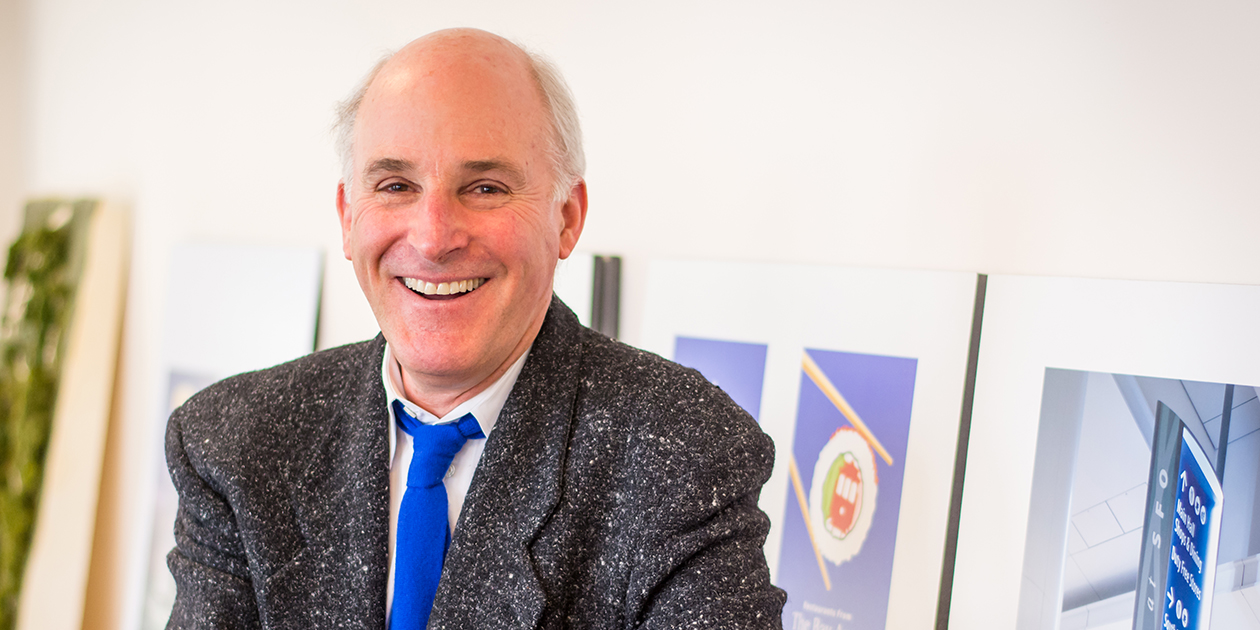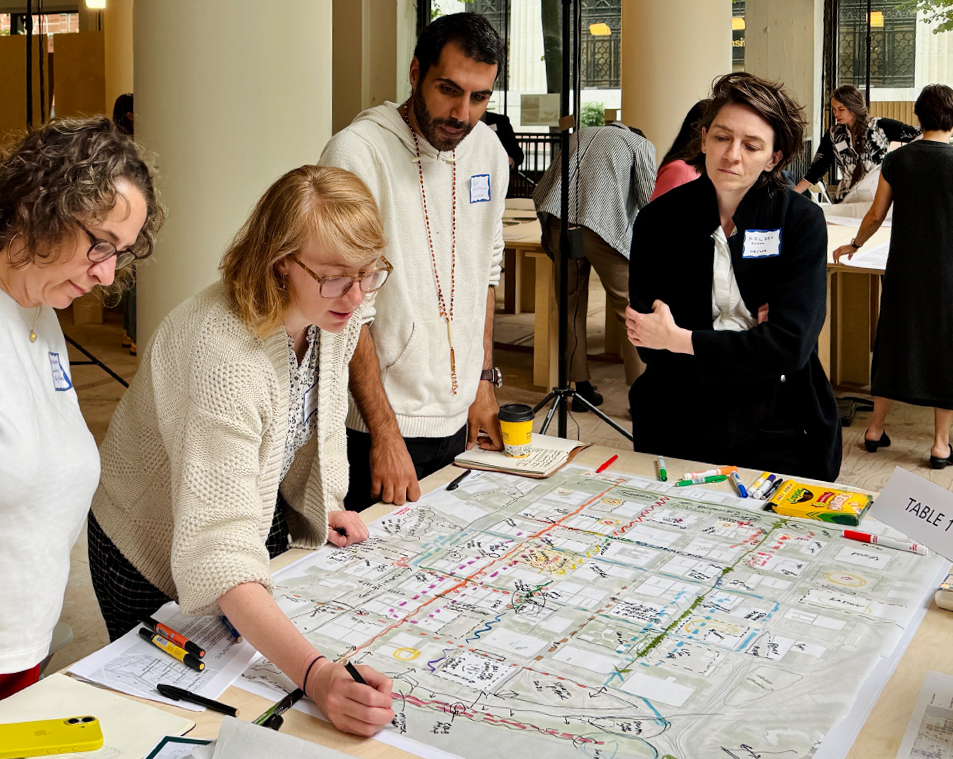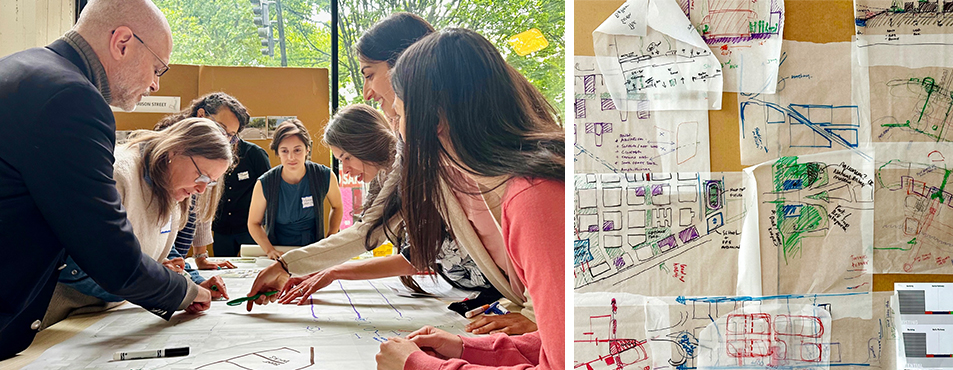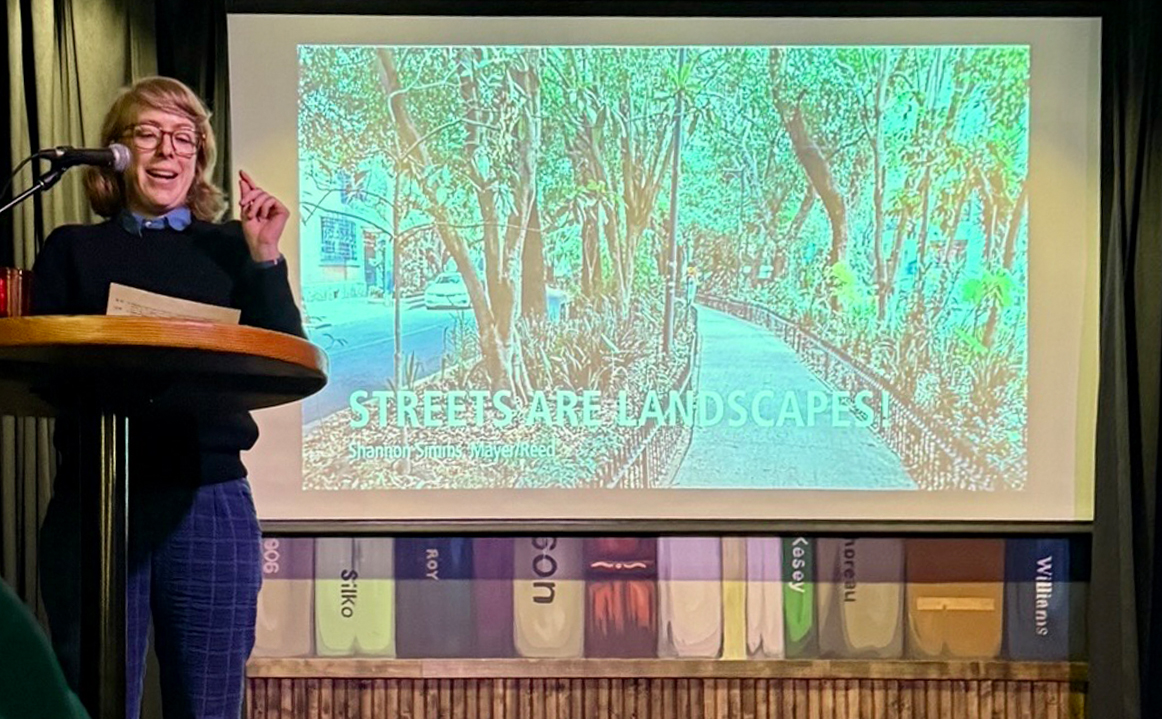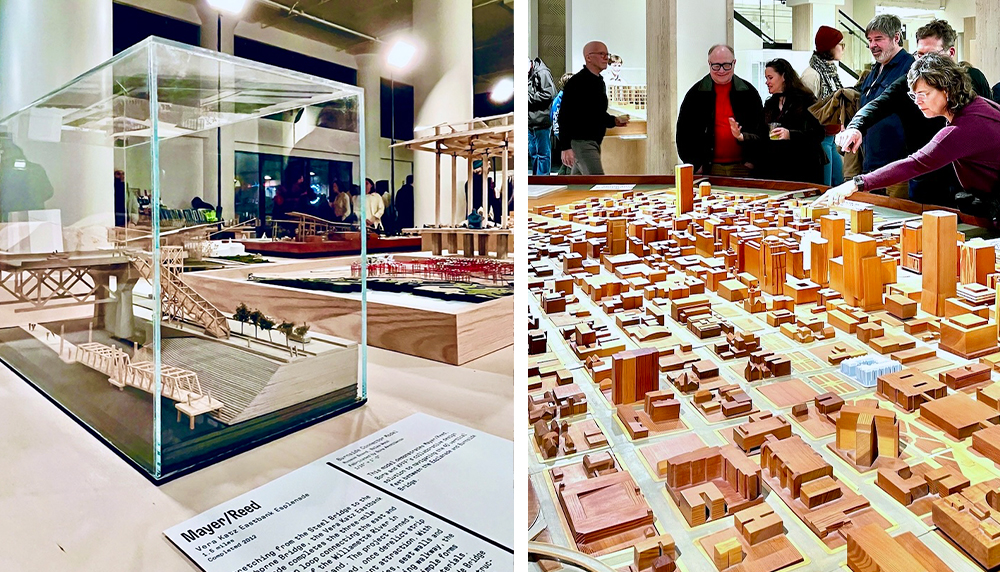I’ve been climbing Mt. St. Helens since 1998, and each summit of the raw terrain is its own unique adventure. As I completed my fifth climb of the 2025 season, I reflected on the role the mountain plays in my life.
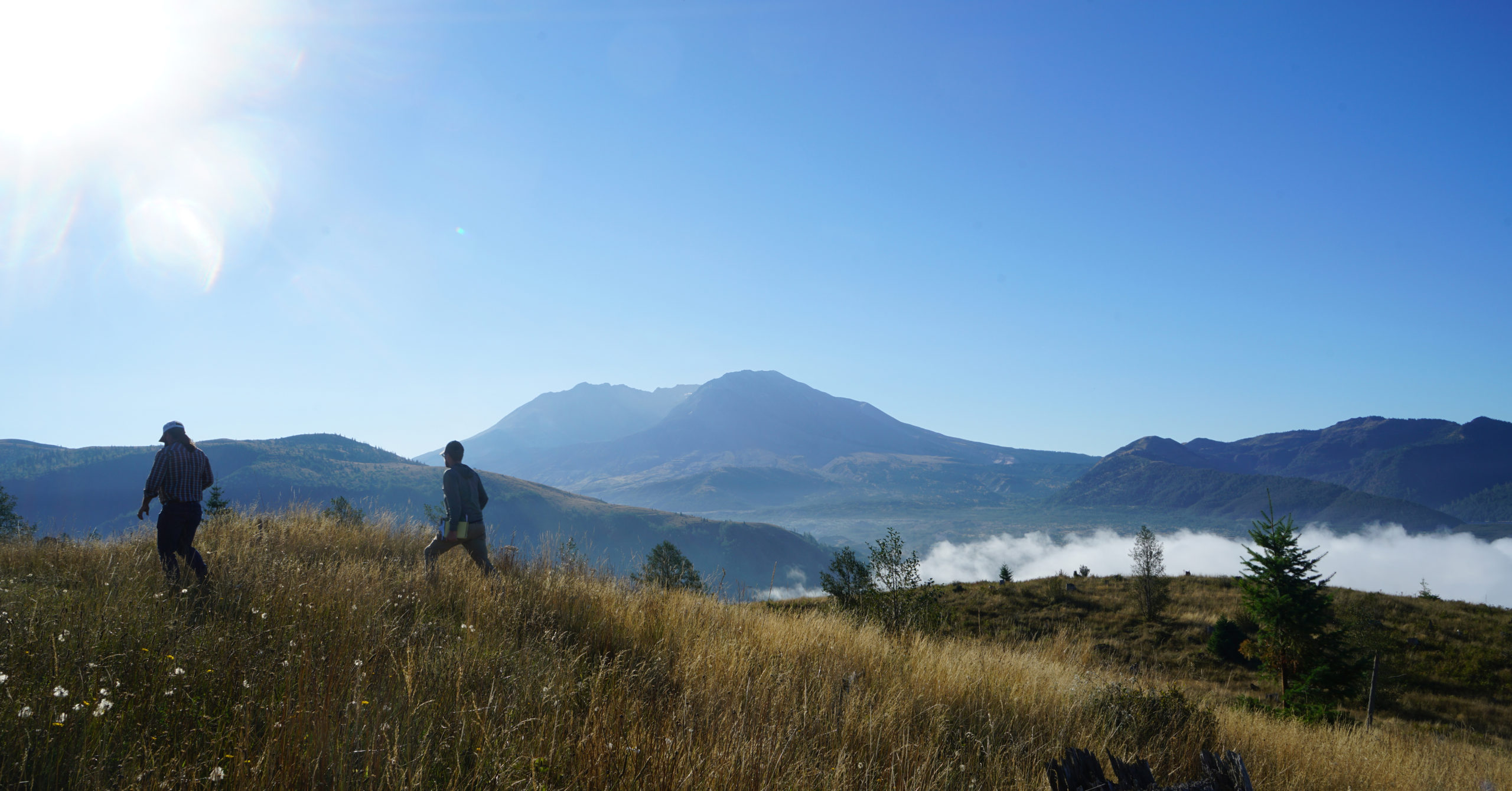
Loowit, as nearby Indigenous people call it, means “smoking mountain,” and on May 18, 1980, this moniker became a reality. The eruption blew 1,300 feet off its peak and triggered the largest landslide in recorded history. Forests were leveled, ash traveled hundreds of miles, and dozens of lives were lost. Today, the mountain continues to remind us of resilience, transformation and respect for nature’s power.
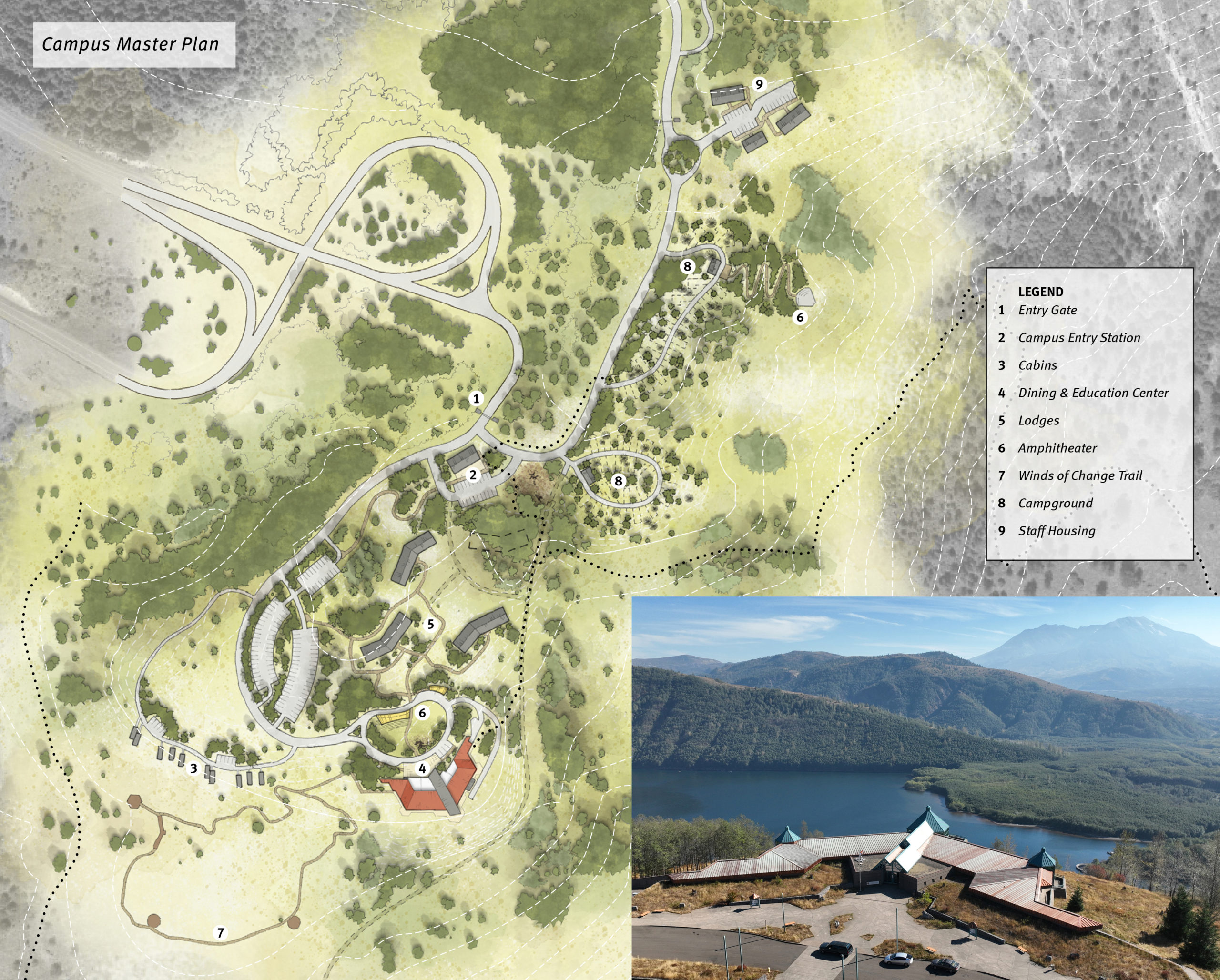
As a principal landscape architect at Mayer/Reed, I am fortunate to connect my personal love for the outdoors with my professional work. In 2018, we worked on a master planning team with Hennebery Eddy Architects for Mt. St. Helens Institute (MSHI), a nonprofit dedicated to connecting people of all ages to the volcano through education and exploration. The site, set directly in line with the 1980 eruption, called for a careful balance of ecological protection and human activity. We explored what a future campus could look like with cabins, campgrounds, staff and student housing and a welcome center, all designed with respect for the landscape, environmental resilience and flexibility, connection to the local ecology and community and universal access. In other words, a place to bring people closer to nature and each other.
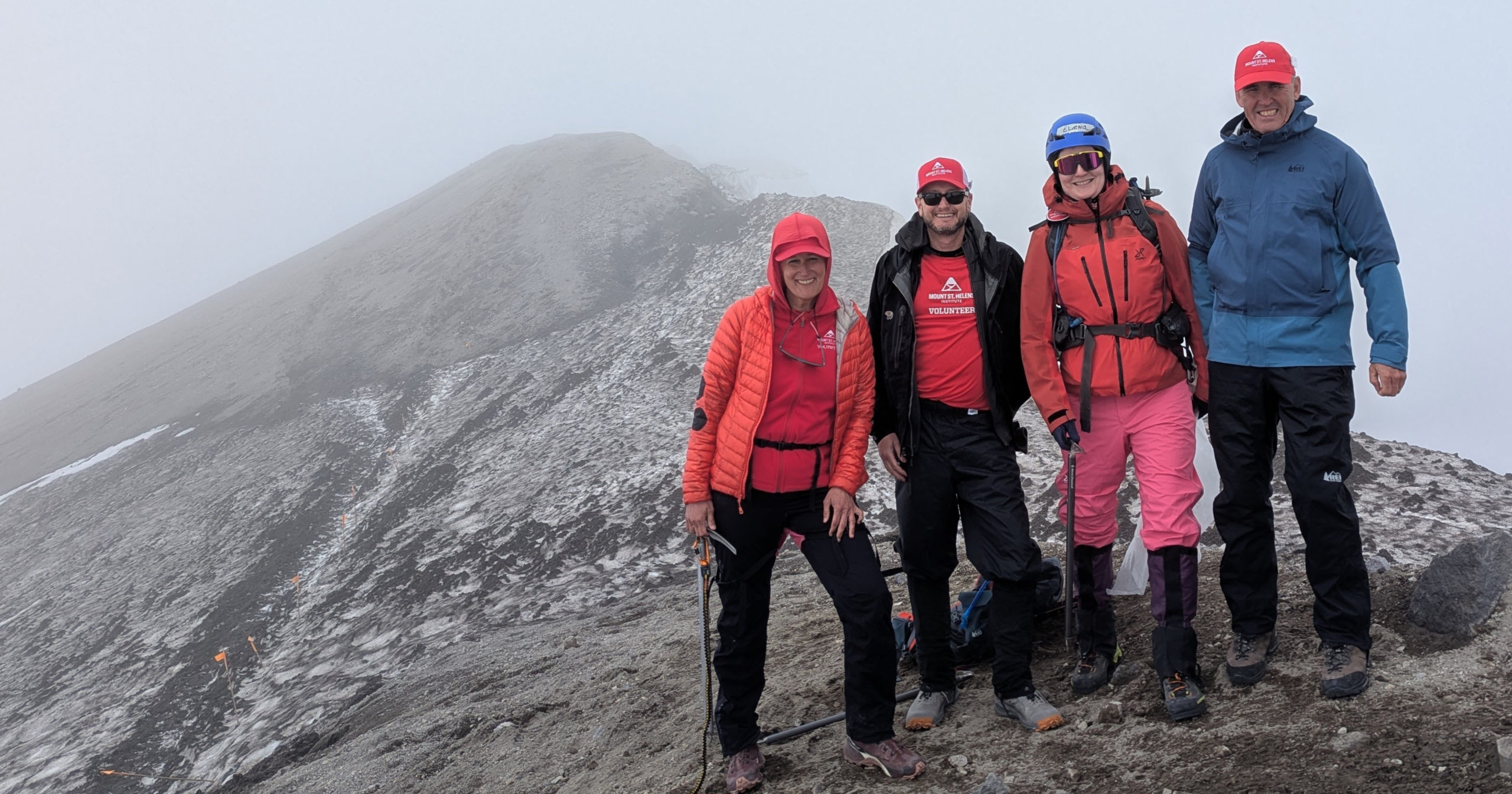
This year, my passion for Mt. St. Helens found a new avenue. After weeks of online courses, CPR and first aid certification and field training, I officially joined the MSHI volunteer ranks as a Climbing Steward. My bright red uniform signals to hikers that I’m here to help, whether it’s offering water or snacks, giving advice on the route, providing emergency support or simply being a source of encouragement. In a time of federal cutbacks and limited U.S. Forest Service resources and staff, volunteer trail support is more crucial than ever.
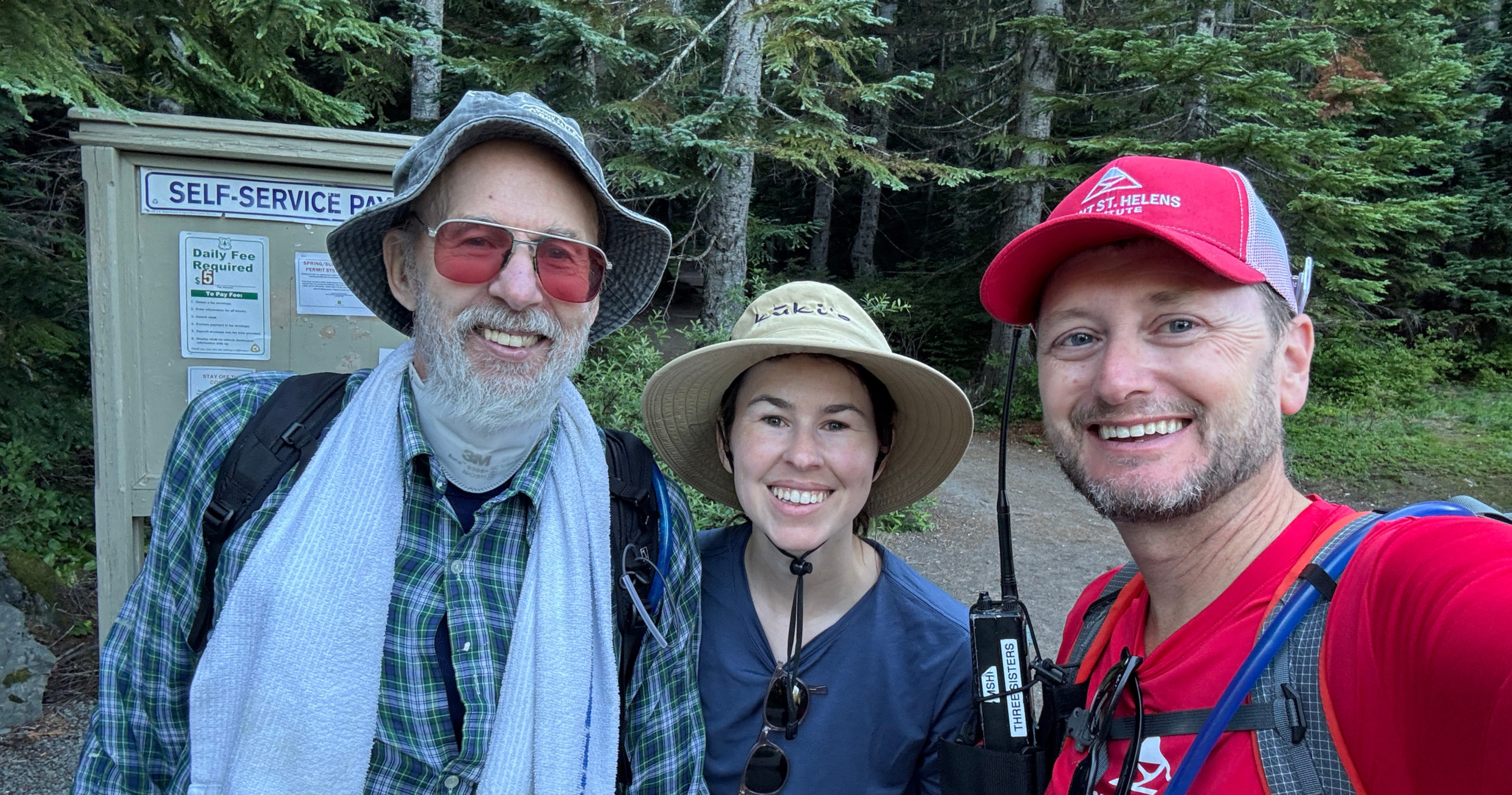
One of my favorite moments as Climbing Steward this summer was meeting David and his daughter, Neah. Decades ago, David testified before Congress in support of making Mt. St. Helens a National Monument, and here he was at 72, climbing with that same spirit. A nod to his past climbs, Neah carried his well-worn Kelty pack from the ’70s. On the way down, I guided them through the boulder fields and hiked with them to the trailhead. Their gratitude was unforgettable. It struck me that stewardship isn’t just about safety—it’s about connection.
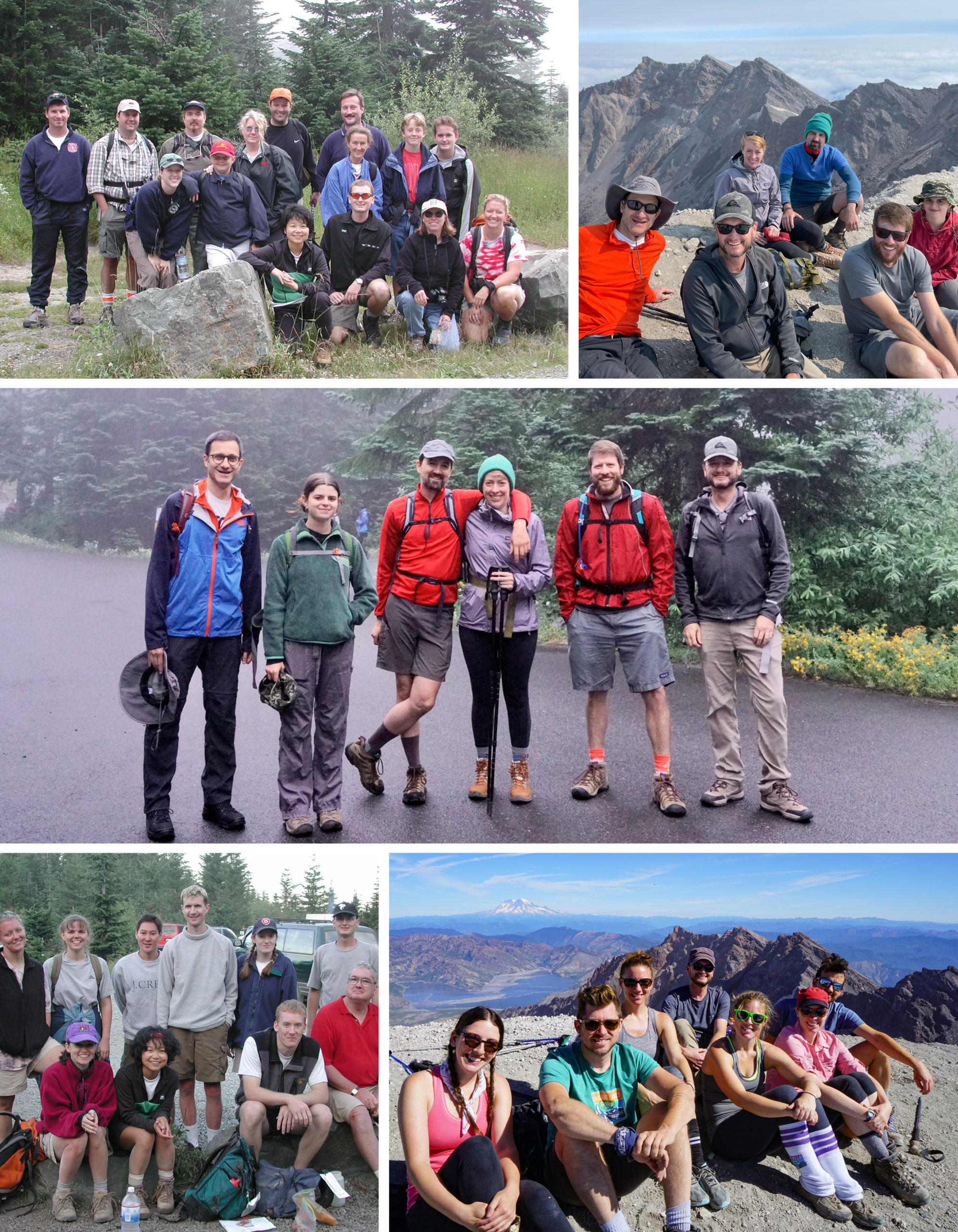
Mayer/Reed has a tradition of hiking Mt. St. Helens together, as far back as 2001 and as recent as this year. These group treks and my personal climbs remind me that our work doesn’t end at the office. When passion meets profession, it becomes more than a job. It becomes a way of life.

